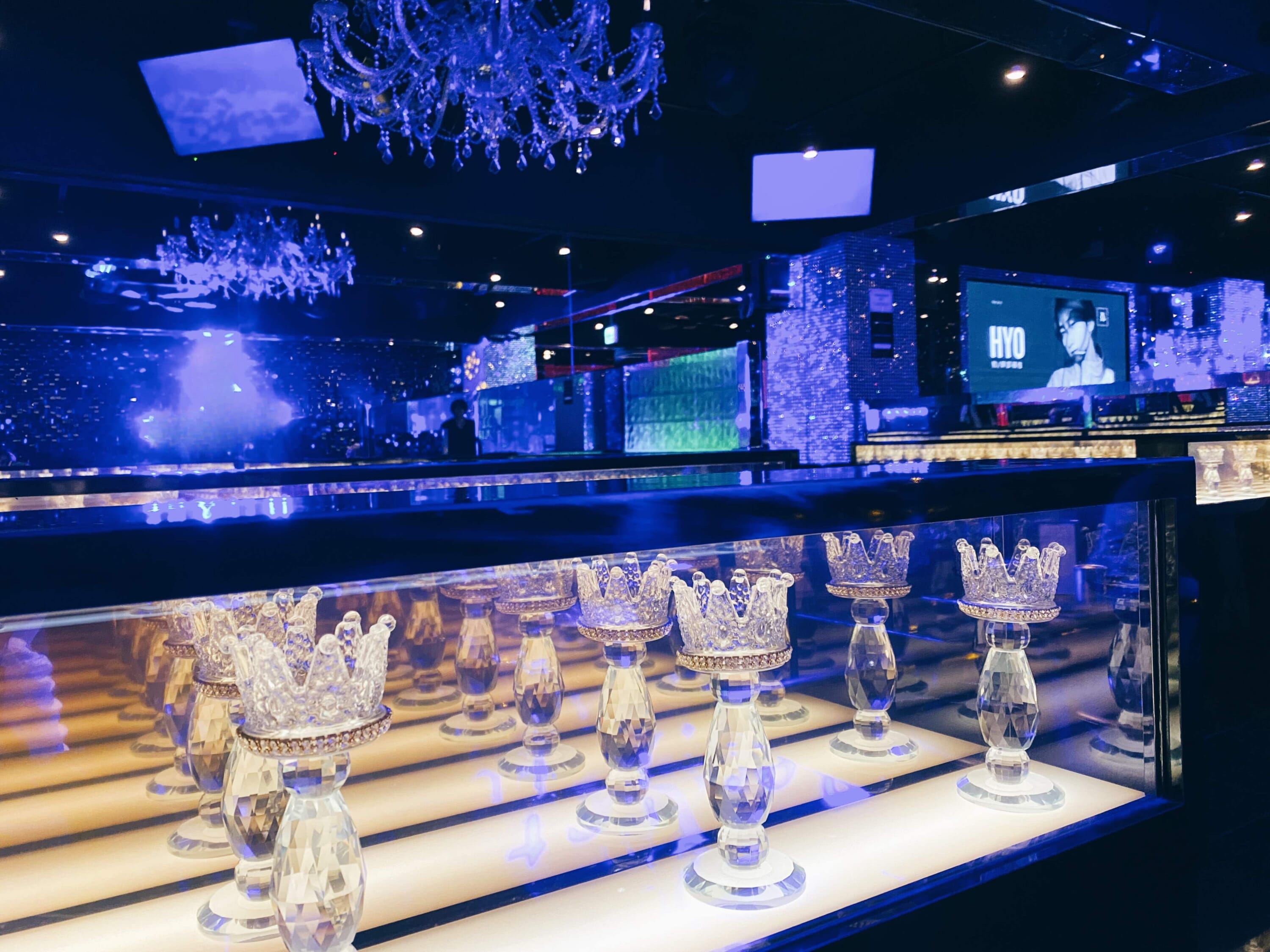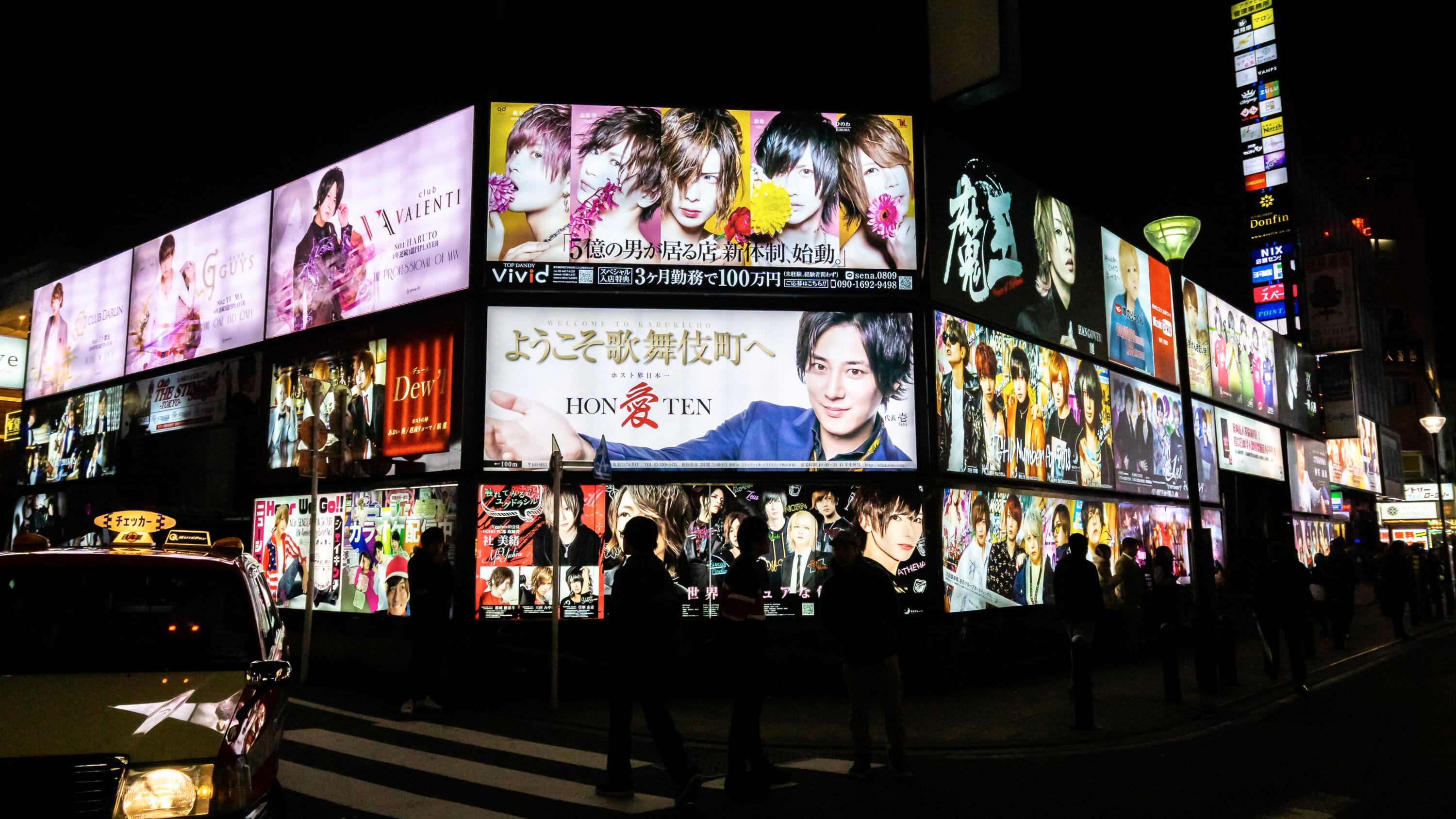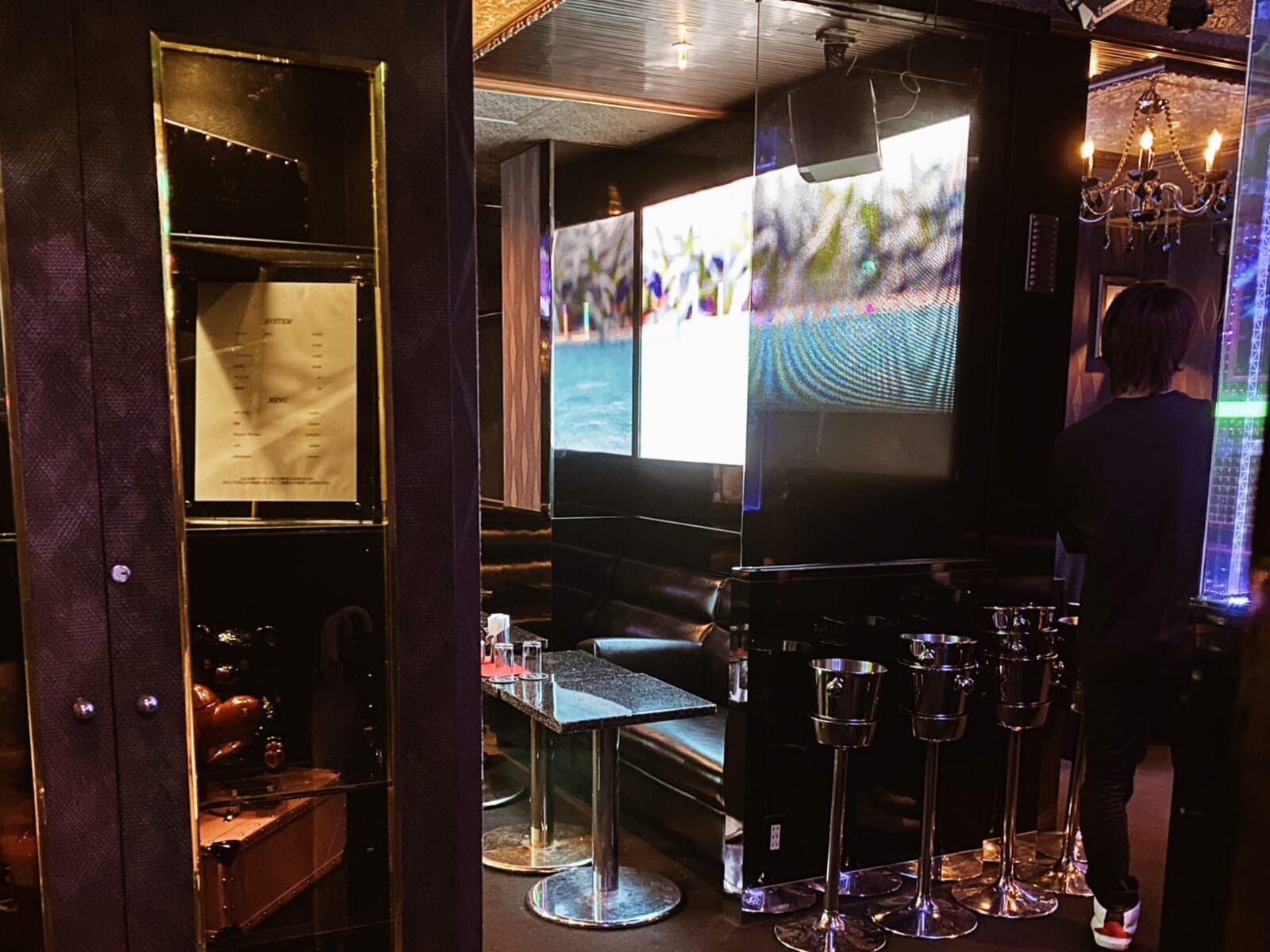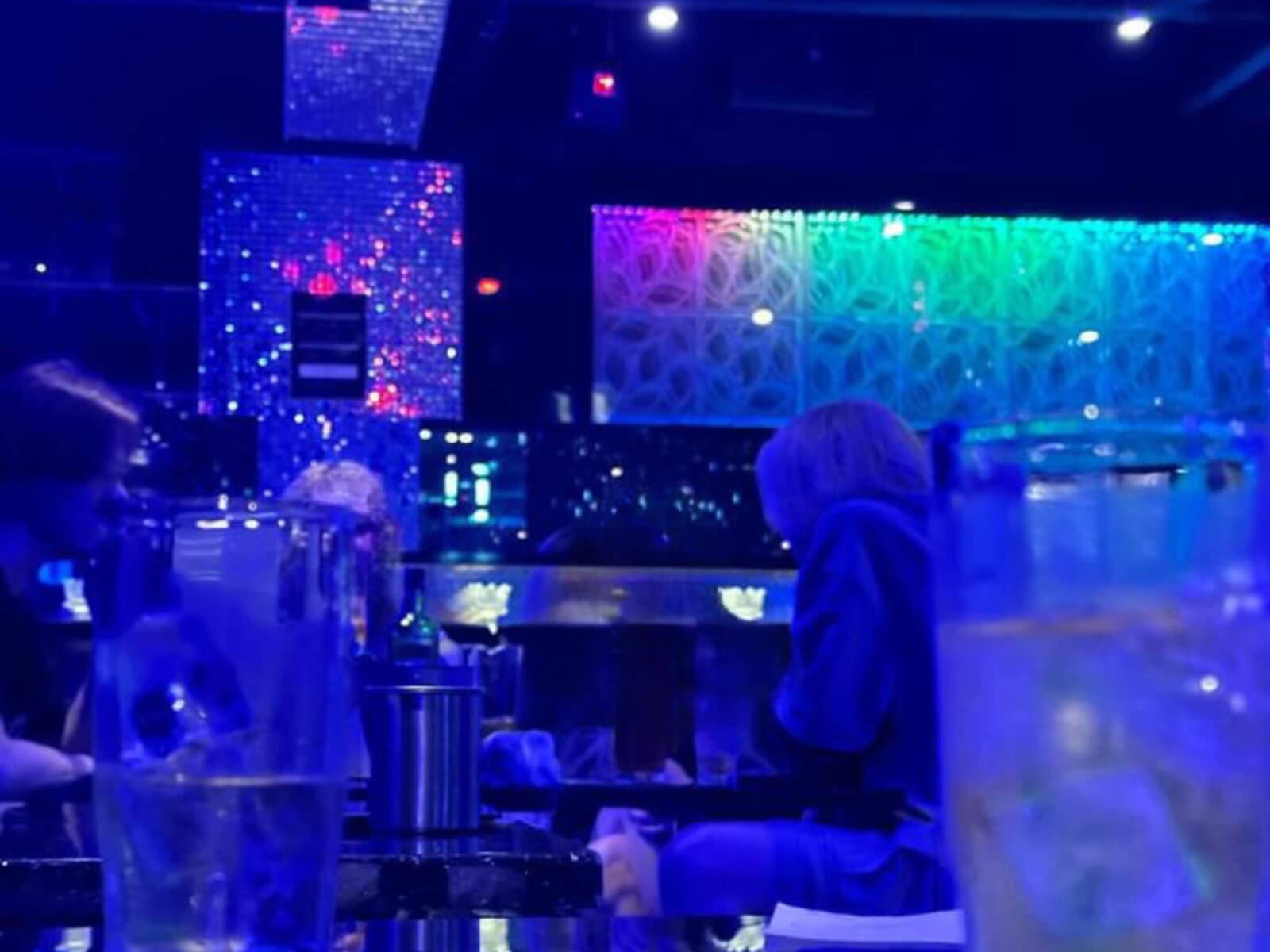A Friday night in Shinjuku is recognized by its multitude of neon lights, bustling footsteps and the sound of taxi doors opening and shutting. Past a certain time, the streets become grittier, cigarette butts on the floor multiply, and you notice more shop fronts displaying the “18+ only” signs. Welcome to Kabukicho. As far as red-light districts around the world compare, many would consider this area to be a much milder variation. However, there is one type of business that you won’t find in most other red-light districts: host clubs.
A host club is the male equivalent of a hostess establishment. It’s where all-male staff members service a majority female clientele who pay for their drinks, conversation and companionship. The service that hosts provide is non-sexual, although as with many gray area industries, options may be available in some places. Myself and a group of female friends, curious about the ins and outs of host clubs, ventured out one night to experience it firsthand.

What You Need To Know Before Going
Online reservations are recommended at most clubs. We realized this very quickly as we were turned away from our first choice as we didn’t have a booking. It was for a place owned by a man considered the “King of the Hosts,” as he is said to hold the Kabukicho host club sales record.
Exploring our options nearby, we found that our large group of nine people also made it challenging for the clubs to accommodate us due to the way hosts are rostered for their shifts. Pairs or groups of three are preferred as hosts typically attend to guests one-on-one.
After halving our numbers, we were able to finally get into a place. We decided on it based on the advertising material displayed outside, the fact that it was part of a fairly large entertainment organization, and word from a street tout who said it was an OK place. He also did not get a commission from us as he didn’t work there.
If you don’t speak Japanese, you will likely not be accepted as a guest. This doesn’t have to do with being a foreigner. The draw and appeal of spending time with a host is the conversation. It will be awkward for both parties if communication is difficult. In our group, there were no Japanese nationals but all of us spoke Japanese to a conversational level or higher. Only one of the hosts at the club we went to spoke English, and he ended up being booked by regulars immediately.
A First Timer’s Experience
If this is your maiden journey to a host club, you can opt for the first-visit rate. This is usually between ¥2,000 and ¥5,000, and will give you one hour in the club, including drinks. After registration (you will need an ID such as your residence card or passport), we were ushered to a booth where our drink orders were taken. We were then handed an iPad to browse through photos of the available hosts. During this time, some of the hosts came by for a 10-minute chat. This is so you can get to know each other and see if there’s compatibility.
We each spoke to four different hosts and, at the end, were asked to choose our main host, known as a shimei. Different host clubs have different policies, but most adopt the rule that once chosen, a customer can only continue to see their shimei and not any other host. Once your time is up, you can stay with him and pay the regular rate, or you will have to leave.
At the club we were at, the regular rate included a table charge of ¥8,000 and a set charge of ¥3,000. To request our shimei required an additional ¥3,000. This didn’t include additional drinks for you and the host that you have to pay for. The price also increases at an hourly rate.
The inside of the club looked like any other nightclub with a dark atmosphere. Seats were spacious and comfortable with groups spaced far apart enough that you couldn’t really see the faces of other patrons. Eurobeat music was played throughout the night to keep a bright atmosphere while always remaining at a reasonable volume so it didn’t disrupt the conversation.
About the Hosts
All the hosts dressed differently and had unique personalities. This could just be who they are, or a specific strategy, so each could stand out and appeal to different clients. My first host was dressed in streetwear and bleached blonde hair. He seemed like an extrovert who was affectionate and gave lots of compliments.
The next one had dark hair and a light blazer on. He was quieter, asked more questions and opened up about his life. The third host was nice, but didn’t make a strong impression on me. And then there was the last one, who barely stayed with me as he got requested by someone else very early in the night. In the short time we had to speak, he seemed a little rude, but perhaps some clients are into the bad boy type and it was just his aloof persona.
Overall, though, I think the hosts spoke well and appeared to be skilled at giving customers attention to make them feel special. I can understand why host clubs have many repeat customers.
I asked all of them why they became a host and their responses ranged from enjoying alcohol to wanting to earn money fast, as well as being curious about the industry after having read and watched a lot of videos about hosts. One of them said he enjoyed competing, referring to how clubs have a ranking system where the top performing host of the month usually receives a prize as well as monetary benefits.
Most of them were in their early- to mid-twenties and had been working as a host for between one and two years. One of them told me he worked at an apparel shop prior to being a host, and much preferred his current job. The club we visited opens at 8 p.m. and closes at 1 a.m., with hosts getting one day off per week.

Should You Visit a Host Club?
Finding love and companionship is difficult. In metropolitan areas such as Tokyo, human density seems to be inversely related to one’s chances of meeting a person you have a connection with. For someone who is lonely, rather than investing in the trial and error of dating apps and being disappointed, you might prefer to spend money at a host club where you’re guaranteed to have a good time with some great conversationalists, even if it’s an illusion of intimacy.
In our specific case, ¥2,000 to get a glimpse of the inside of a host club was well worth the time and money. Among my friends, we joked that it was excellent Japanese conversation practice, cheaper than the average Japanese lesson. Despite the Kabukicho area, we felt safe the entire time we were at the club, but it’s unlikely that we’ll go back, as we’d have to pay the regular rate.
There have been reports highlighting the predatory nature of the host club industry. Recently, the Japanese government has started to crack down on some dishonest behavior, such as the pay-later scheme that sometimes results in customers having to pay huge amounts of debt to the host club.
For your own safety, you should only go to a host club with people you trust. You should also do research online to ensure the club you’re planning to visit is legitimate. Only visit a host club if you have the means to cover the cost. And remember that your relationship with a host is purely transactional.










